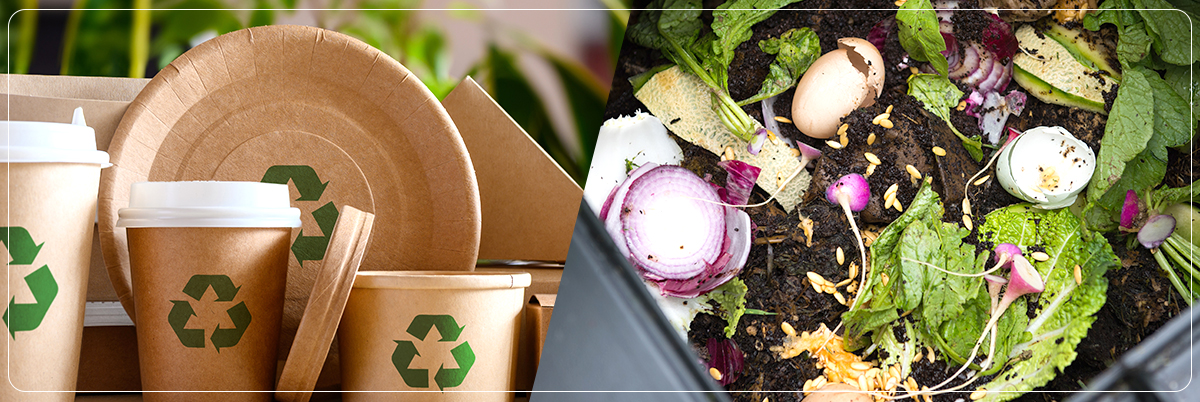What is the Difference Between Compostable and Biodegradable?

When making purchasing decisions between “compostable” and “biodegradable” products in the foodservice industry, you may be asking yourself, what do each of those terms mean, and is one better than the other?
As always, Envoy Solutions is here to help by highlighting what you need to know. We’ve been selling disposable foodservice products across our family of companies for decades, and we are committed to protecting the environment. We'll teach you the ins and outs as well as the pros and cons of compostable and biodegradable products.
What is Biodegradable?
Something is "biodegradable" if bacteria, fungi, or other biological processes can disintegrate it. If you look at the word itself, the meaning is right there. "Bio" means "life," "degrade" means to break down, and "able," of course, means that it can happen. Biodegradation is just the process of nature taking its course and breaking down materials into their parts. Plastic will break down into carbon dioxide, water, and other things. Pretty simple, right?
The truth is that lots of things are biodegradable if given enough time. Plastics take decades or even centuries to break down naturally, but they will break down. So, they are biodegradable. Even diapers, notorious for lasting long in landfills, will break down eventually.
When a packaging company says that their product is biodegradable, all they mean is that it will break down when placed in a landfill. That's a good thing. We don't want products that last forever sitting in our landfills. The key, however, is to note how long it takes for the product to biodegrade. Some products degrade in months, while others take years. When shopping for green products, the less time for biodegradation, the better.
What is Compostable?
We've all heard of a compost heap, right? When you take organic materials and allow them to decompose, it then creates fertilizer for your soil. Composting is the process of recycling organic waste so that it can eventually be reused.
In the packaging world, compostable means something a bit different. Typically, what a packaging company means when they call their product "compostable" is that it can be turned into compost if entered into an industrial composting facility. It is an important distinction.
Compostable products do not always biodegrade naturally in a landfill. They will take much longer to break down in a landfill, especially an "air-locked" landfill with no oxygen.
Compostable products are great for the environment, but it is essential to ensure that your business has the proper waste management processes. Make sure that your compostable waste is going to a compost facility.
What's the Difference?
The primary difference between compostable and biodegradable products is that compostable products require a specific setting to break down, whereas biodegradable products break down naturally. Typically composting is a faster process, but only under the right conditions. Both products are better for the environment than plastic, which can take hundreds of years to disintegrate.
Are you looking for more environmentally friendly foodservice solutions? Contact us and we’ll help you identify the products that are right for your business.

